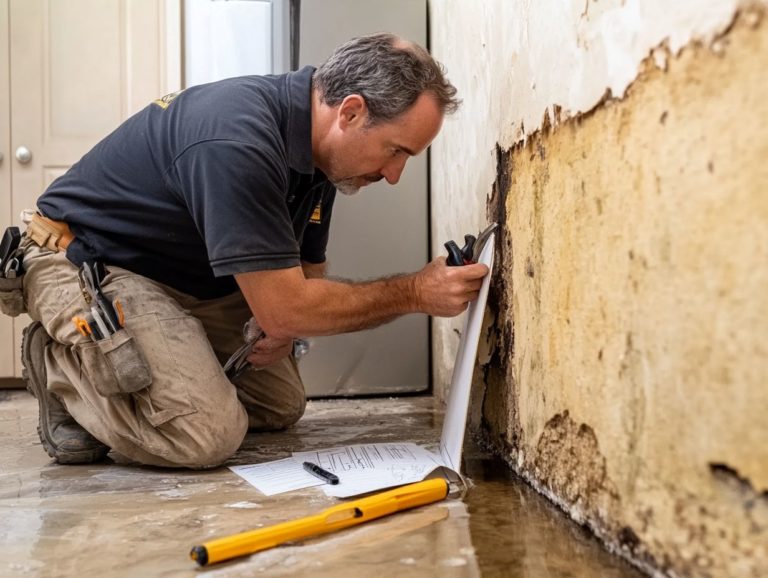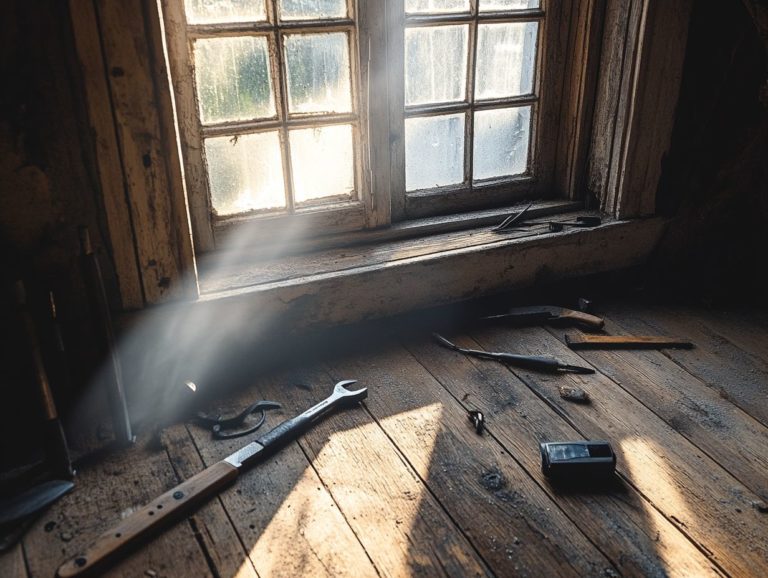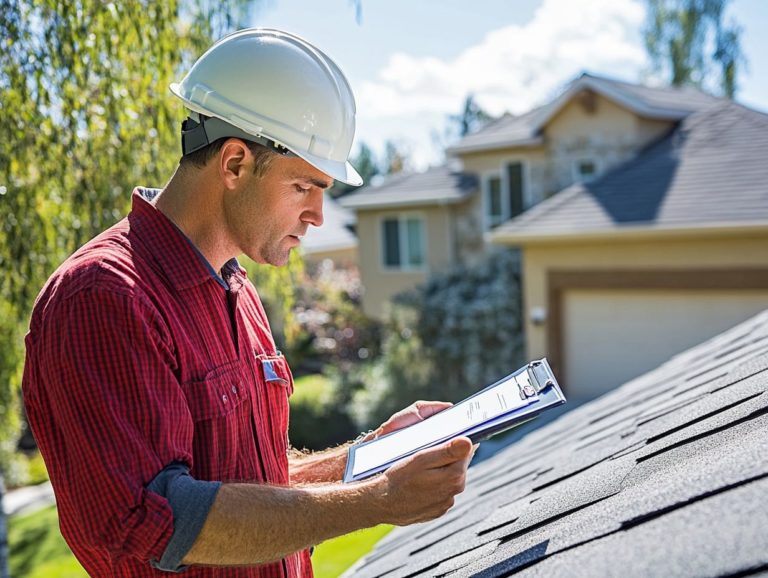The Role of Home Inspections in Real Estate Transactions
Buying or selling a home is an exhilarating journey, yet it can also feel quite overwhelming. Grasping the significance of a home inspection is important in this intricate process.
This article delves into what a home inspection involves and why it matters for both buyers and sellers. It will lead you through the entire procedure, step-by-step.
From pinpointing common issues to selecting the right inspector and negotiating necessary repairs, this article equips you with the knowledge to make informed decisions and confidently navigate the world of real estate transactions.
Contents
- Key Takeaways:
- What is a Home Inspection?
- Why Home Inspections are Important in Real Estate
- The Home Inspection Process
- Common Issues Found During Home Inspections
- How to Choose a Home Inspector
- Negotiating Repairs and Discussing the Price Again
- Frequently Asked Questions
- What is the role of home inspections in real estate transactions?
- Who typically pays for a home inspection?
- How long does a home inspection typically take?
- What does a home inspector look for during an inspection?
- Can a home inspection affect the outcome of a real estate transaction?
- Should I be present during the home inspection?
Key Takeaways:

A home inspection is a vital step in the real estate process that assesses a property’s condition. It benefits both buyers and sellers by identifying potential issues and allowing for negotiations on repairs and price. To make the most of this process, understanding the role of home inspectors is crucial. When choosing a home inspector, consider their qualifications, experience, and ask important questions to ensure a thorough inspection.
What is a Home Inspection?
A home inspection is a thorough assessment of a residential property’s condition, usually carried out by a certified inspector. This important process helps you uncover any significant issues that could impact the property’s value and safety, enabling both buyers and sellers to make informed decisions in a real estate transaction. For more insights, consider understanding the importance of home inspections.
By scrutinizing various structural components, electrical systems, plumbing issues, and HVAC systems, inspectors deliver a detailed report that aids in evaluating the overall property condition. Ultimately, a comprehensive home inspection boosts buyer confidence and enables timely repairs. This ensures that potential problems are resolved before the sale is finalized.
Definition and Purpose
A home inspection is essentially a comprehensive examination of a property’s current condition, carried out by a professional to evaluate its safety and integrity.
The main goal of this assessment is to provide you, whether you re a potential buyer or seller, with insights into existing issues that could affect the property s market value and overall livability.
This careful process involves scrutinizing critical components, starting with the structural integrity. Inspectors dig deep to uncover any signs of damage that might jeopardize the home’s stability.
They also examine electrical systems to ensure they comply with safety standards and are free from hazards. Plumbing systems are checked for leaks and functionality, while HVAC systems are evaluated for efficiency and reliability.
Every detail uncovered during the inspection is crucial. These findings enable you to make informed decisions about repairs, negotiations, and your overall investment strategy, ensuring you re well-equipped to navigate the real estate landscape.
Why Home Inspections are Important in Real Estate
Home inspections are crucial! They help you uncover issues before they become costly surprises during the sale. Understanding the value of home inspections for home sellers serves as a cornerstone for both buyers and sellers while guiding critical financial decisions.
By offering a comprehensive assessment of the property’s condition, a home inspection enables you to make informed choices, bolstering your confidence in the investment.
For sellers, a pre-listing inspection reveals necessary repairs, enhancing the property s appeal and minimizing the chances of major issues cropping up during negotiations.
Benefits for Buyers and Sellers
Home inspections present a wealth of advantages for both buyers and sellers in the real estate market, as they help you understand the role of a home inspector, enabling you to make informed decisions and boosting buyer confidence.
For you as a buyer, a comprehensive inspection can reveal hidden issues that might require costly repairs, allowing you to negotiate effectively with sellers.
On the flip side, sellers can take a proactive approach to address potential problems before listing their property, enhancing its market appeal and potentially securing a higher price.
Conducting inspections encourages timely repairs that can stave off future financial burdens for both you and the seller. As a buyer, you gain the ability to sidestep unforeseen expenses after the purchase, helping you avoid dissatisfaction and unexpected financial strain.
Meanwhile, sellers have the opportunity to resolve issues upfront, creating a transparent and trustworthy relationship with potential buyers. This level of openness not only amplifies buyer satisfaction but also streamlines the sales process, making it smoother and more efficient.
Ultimately, the collaborative spirit fostered by inspections can pave the way for successful transactions and greater peace of mind for everyone involved, especially when understanding the home inspector’s role.
Don’t wait! Schedule your home inspection today to protect your investment and make informed decisions!
The Home Inspection Process
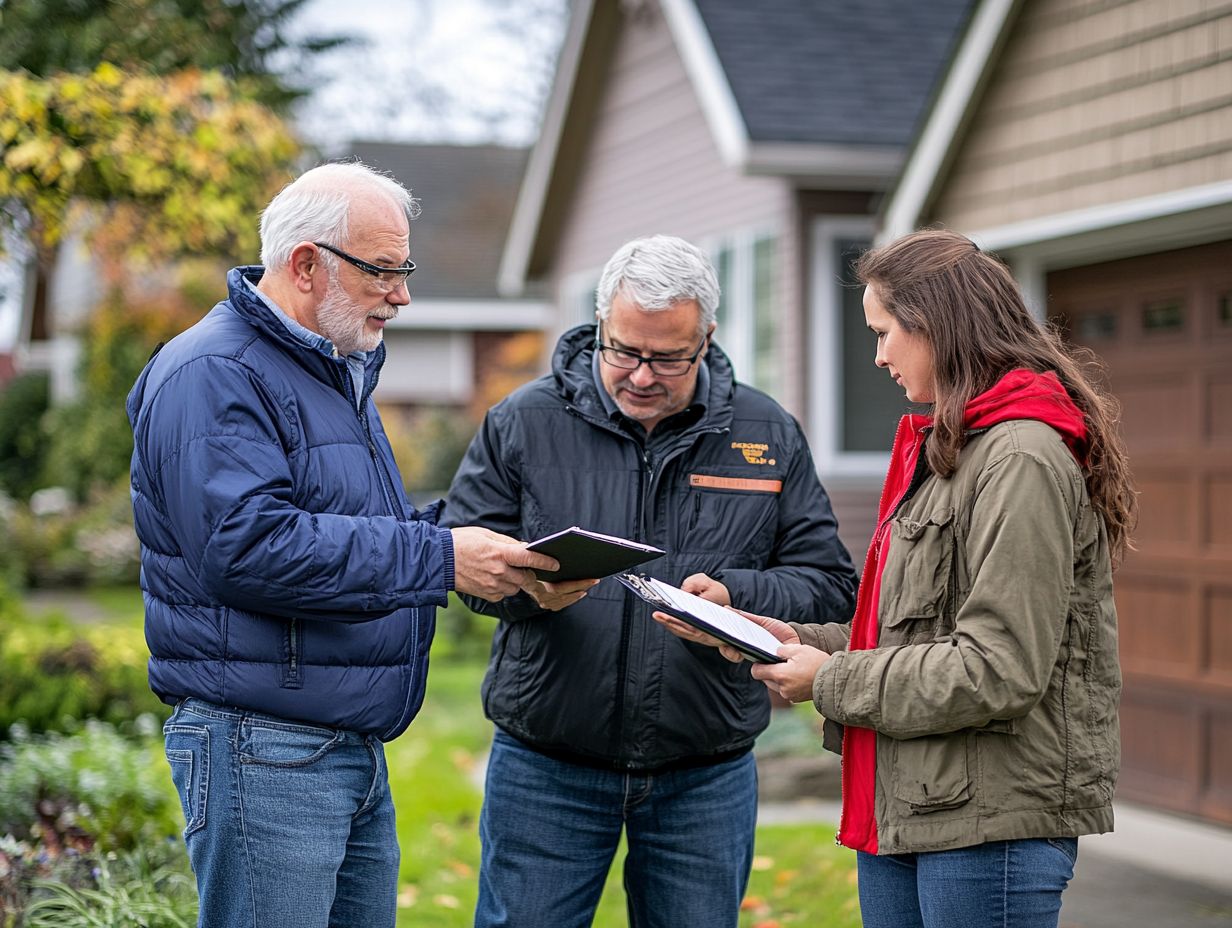
The home inspection process is a meticulous evaluation of several key aspects of a property. Typically carried out by a certified inspector, this process adheres to a structured guide for thoroughness and precision.
You can expect the inspector to assess the structural integrity, electrical systems, plumbing, heating, ventilation, and air conditioning (HVAC) systems, and other vital components. This delivers a comprehensive overview of the property s condition.
Once the inspection is complete, you’ll get essential findings that can help you make informed decisions right away! The report will highlight any significant issues, along with valuable maintenance tips to help you mitigate future risks.
Step-by-Step Guide
A step-by-step guide to the home inspection process is invaluable for understanding what to expect when evaluating a property’s condition. It typically begins with scheduling an inspection with a certified inspector.
The inspector will conduct a thorough evaluation of various components, including structural integrity, electrical systems, plumbing, and HVAC. Once your appointment is set, gather any relevant documentation regarding previous repairs or concerns.
During the inspection, the inspector will employ specialized tools such as moisture meters and thermographic cameras, which help detect temperature changes that may indicate problems. The entire process usually takes a few hours, depending on the property’s size and complexity.
Review the report carefully after the inspection, noting any significant issues that may require immediate attention or negotiation with the seller. This will enable you to make a well-informed decision as you move forward.
Common Issues Found During Home Inspections
Home inspections frequently uncover a range of common issues that can profoundly affect a property’s value and safety. These include structural concerns, electrical system faults, plumbing leaks, and HVAC inefficiencies.
Understanding these potential problems is essential for both buyers and sellers in a real estate transaction. They can sway negotiations and financial choices.
By identifying issues early, you can facilitate quick repairs, ensuring a smoother homebuying process!
Structural, Electrical, and Plumbing Concerns
During home inspections, you ll often encounter significant structural, electrical, and plumbing concerns that warrant your attention. They can profoundly impact both safety and property value.
For example, foundation cracks can lead to uneven floors. This not only detracts from the home’s aesthetic appeal but may also escalate into more serious structural failures if left unaddressed.
In terms of electrical systems, outdated wiring can be a red flag. It may not be equipped to handle contemporary electrical loads, presenting potential fire hazards.
Plumbing systems can be deceptive. Hidden leaks or poorly installed pipes might not be immediately apparent but can result in long-term damage, such as mold growth and extensive water issues.
By meticulously evaluating these aspects during the inspection, you can assess the overall integrity of the property and make informed decisions about necessary repairs or negotiations.
How to Choose a Home Inspector
Selecting the right home inspector is crucial for a comprehensive assessment of a property’s condition. There are several important factors you should consider during this selection process.
- Seek a certified inspector who holds relevant credentials, preferably a member of esteemed organizations like the American Society of Home Inspectors or the International Association of Certified Home Inspectors.
- Engage them with the right questions regarding their experience, inspection techniques, and the specific services they offer. This ensures that the inspection meets your unique needs.
Factors to Consider and Questions to Ask
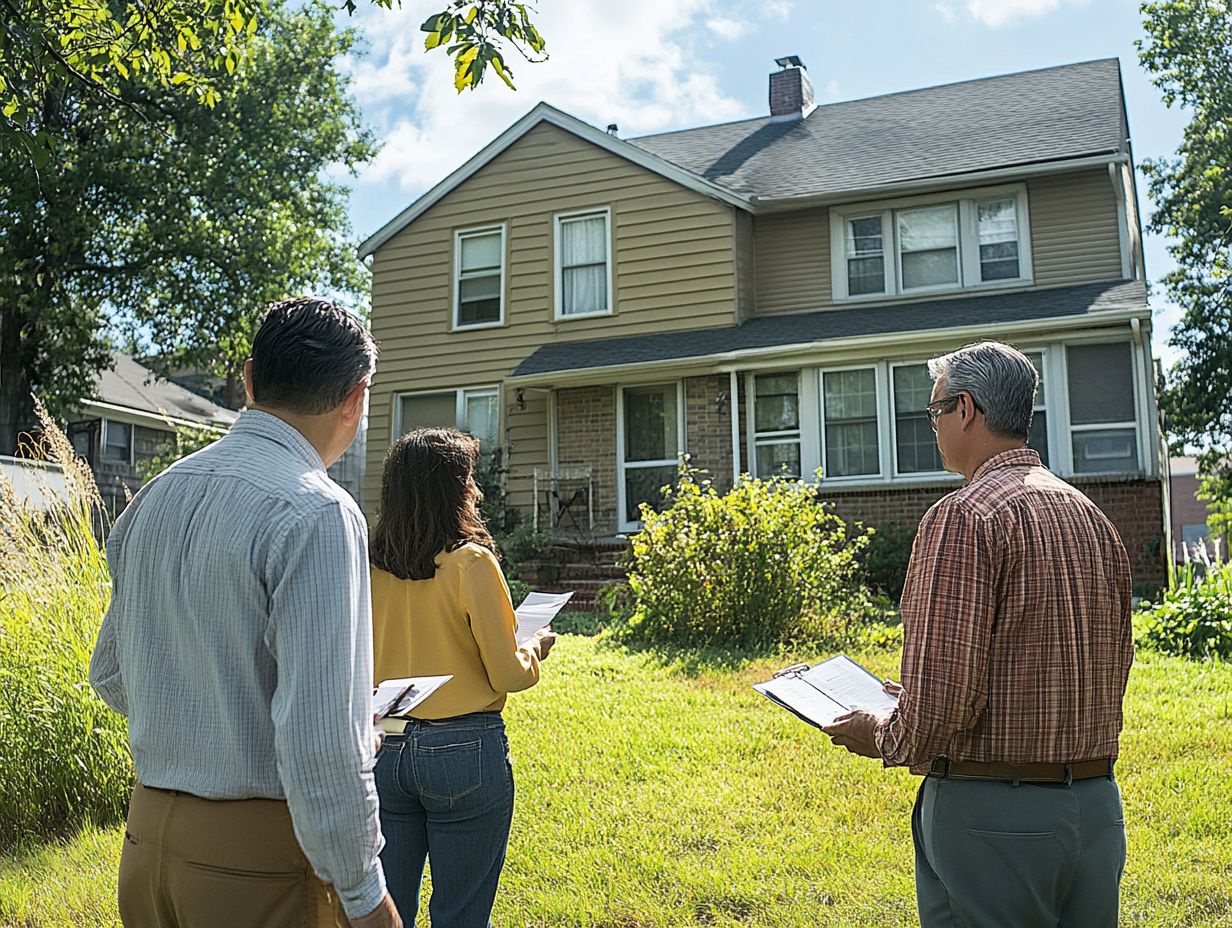
When choosing a home inspector, there are several factors you should keep in mind. Asking the right questions will ensure you receive a thorough inspection.
Seek out a certified inspector with significant experience, particularly in the type of property you re considering. Beyond just certifications, delve into their past work on similar properties to gain insights into their expertise.
Also, ask about the specific inspection methods they use, whether they employ advanced technology, and how they communicate their findings once the inspection is complete.
Availability is another critical factor. Understanding their scheduling flexibility can help you avoid delays in your buying process. Assessing their responses can be straightforward; observe their confidence, clarity, and openness to provide references from previous clients, all of which will help gauge their reliability.
Negotiating Repairs and Discussing the Price Again
Negotiating repairs and possibly discussing the price again after receiving home inspection findings is a crucial part of the homebuying journey. It can affect your confidence as a buyer and the outcome of the transaction.
It s essential to approach these negotiations with a strategic mindset. Use the inspection report as a powerful tool to address any serious problems that have come to light. By communicating effectively with the sellers clearly outlining the identified problems and proposing practical solutions you can pave the way for favorable arrangements that meet the needs of both parties involved.
Strategies for Addressing Inspection Findings
Developing strategies to address inspection findings is crucial for effectively negotiating repairs and ensuring a seamless homebuying process. Prioritize those findings based on urgency and their potential impact on safety and property value, creating a clear plan for discussions with sellers.
For instance, if major plumbing problems arise, you could request that the seller either complete the necessary repairs before closing or provide a credit to cover the costs.
Using data from comparable homes in the area can strengthen your case for price reductions or offers to reduce the price or make repairs, showcasing how your request aligns with market standards. Navigating these discussions successfully encourages collaboration between you and the seller.
Frequently Asked Questions
What is the role of home inspections in real estate transactions?
The role of home inspections in the home buying process is to provide a thorough evaluation of the property’s condition. This identifies any potential problems that may affect the value or safety of the home. This information allows buyers to make informed decisions and negotiate repairs or price adjustments if needed.
Who typically pays for a home inspection?

In most cases, the buyer is responsible for paying for the home inspection. However, in some cases, the seller may choose to cover the cost as part of their home selling process. It is important to clarify this with your real estate agent before scheduling a home inspection.
How long does a home inspection typically take?
The length of a home inspection can vary depending on the size and condition of the property. On average, a thorough home inspection can take anywhere from 2 to 4 hours. However, larger or older homes may take longer to inspect.
What does a home inspector look for during an inspection?
A home inspector will typically look at the structure, exterior, roof, plumbing, electrical systems, heating and cooling systems, insulation, and interior of the home. They will also check for any signs of water damage, pests, or safety hazards.
Contact your real estate agent today to ensure your home inspection goes smoothly!
Can a home inspection affect the outcome of a real estate transaction?
Yes, a home inspection can definitely affect a real estate deal. Finding major problems can lead buyers to back out or renegotiate the terms, making it crucial to understand the necessity of home inspections.
Sellers might agree to make repairs or lower the price to keep the sale on track.
Should I be present during the home inspection?
You should definitely be there during the home inspection! This way, you can ask questions and understand what the inspector finds.
If you can’t attend, your real estate agent can represent you and share important details from the report.


